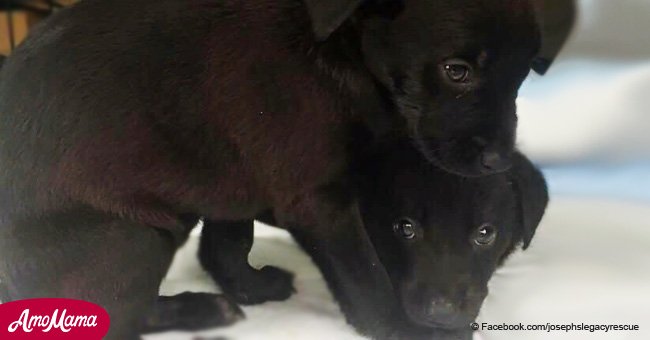
Vets warn about potentially fatal virus spreading among pets
Deadly cases of the canine parvovirus have been observed around the Tri-state. The virus is spreading at an accelerated rate.
According to the Greater Cincinnati Veterinary Specialty and Emergency Services, the cases of this virus infection appear to come in waves, Fox News reports.
Joseph' Legacy Animal Rescue posted photographs of two puppies on Facebook suffering from the virus that the organization took under their shelter.
The organization posted a lengthy message regarding the puppies and the disease. They urged people to keep the two puppies battling with the virus in their thoughts and prayers.
The virus is contagious and can affect all dogs, but puppies that are not vaccinated have a higher risk of being harmed, as per the American Veterinary Medical Association.
Read more about the canine parvovirus on our Twitter account @amomama_usa.
The virus enters dogs when they ingest feces. It attacks the inner lining of their intestines and eventually causes the depletion of nutrients. This lack of nutrition drastically lowers the immunity of the mutts causing severe complications.
According to Health Communities, the symptoms of canine parvovirus include severe and bloody diarrhea, lack of energy, fever, loss of appetite, vomiting and rapid weight loss.
Other complications include dehydration, secondary infections, and sepsis. The virus can also be responsible for damage to the spleen.
A vaccination to fight the virus exists for dogs. Dogs that have contracted the virus have to be quarantined. Their surroundings should be cleaned and sanitized immediately to avoid any further complications that can prove fatal.
The vaccination available for treating puppies with canine parvovirus is called DA2PP. Besides the parvovirus, it covers parainfluenza, adenovirus-2, and distemper in dogs, according to Garden Oaks Vet.
Puppies within the age group of six to eight weeks should receive a shot of the core vaccination every month. The injection should be given to dogs until the time they turn at least 16 months old.
